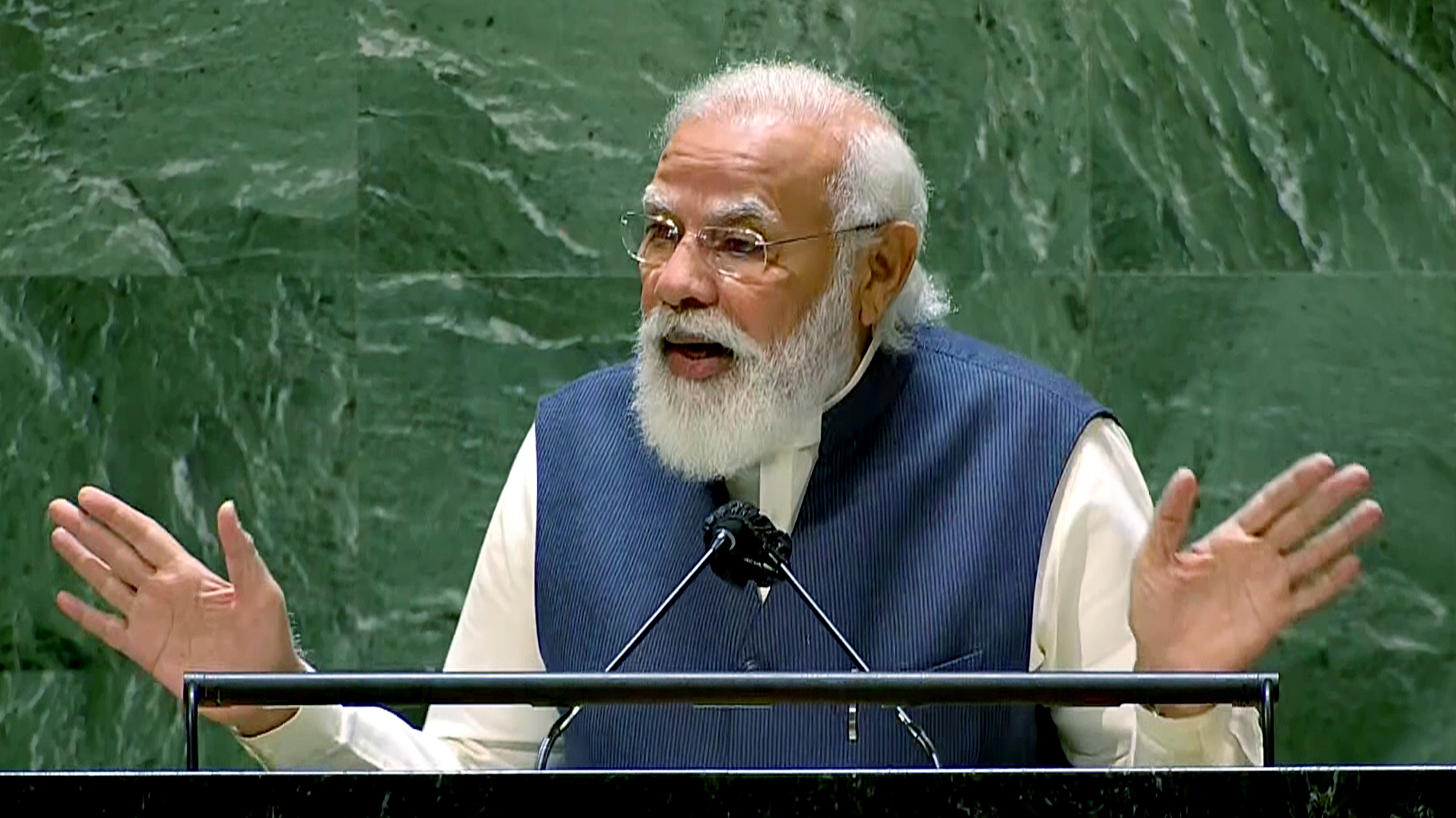PM Modi’s humanitarian concerns in war-torn Ukraine find remarkable resonance in Beijing declaration of the BRICS summit despite China-Russia’s rancour against the West.
New Delhi: In what is being viewed as yet another remarkable diplomatic triumph of India, Prime Minister Narendra Modi’s “humanitarian concerns” in war-struck Ukraine found significant mention in the BRICS Beijing Summit Declaration issued on 23 June. Secondly, New Delhi’s stand favouring only dialogue and diplomacy to resolve differences between Russia and Ukraine stood tall during the 14th BRICS (Brazil, Russia, India, China and South Africa) summit hosted virtually by Chinese President Xi Jinping. All this happened despite China and Russia resenting the West for sanctions against Moscow over the military operations against Kyiv. PM Modi safely and delicately steered clear of the two BRICS members’ rancour against the Western bloc, keeping his focus only on the dialogue and humanitarian crisis resulting from the military action against Ukraine, which was then mentioned prominently in the Beijing Declaration, top diplomatic sources told The Sunday Guardian.
“At a time when the world is divided into two blocs, India can take an independent stance for humanity. India has kept its national interests at the forefront.” Diplomats recall PM Modi’s these words alluding to the Russia-Ukraine war. “This is what PM Modi has continued to stick to,” diplomats said. The BRICS joint statement takes a balanced line on Ukraine focusing on the humanitarian situation, which is what PM Modi wanted to convey. The statement also reiterates commitment to the principles of the UN Charter.
Sources said that the BRICS statement makes India’s position on the Russian invasion of Ukraine abundantly clear ahead of PM Modi’s participation at the G7 leaders’ summit in Germany in the next two days where Moscow is likely to be slammed vehemently. “Like PM Modi did not join China and Russia in criticizing the West, the Indian premier will not join the West in condemning Moscow either. His will be an independent neutral line highlighting the humanitarian crisis which will in all likelihood be approved by the leaders of the G7 nations,” highly-placed sources said.
Observers believe that the Beijing Declaration of the 14th BRICS Summit has amply demonstrated what role India can play on the global state in terms of influencing the opinion of the West and other countries, including those of BRICS on the Ukraine situation. That India is a benevolent state has been reaffirmed and cemented by the declaration, sources maintained.
Diplomats told this newspaper that it goes to the credit of the Indian leadership’s persuasive and diplomatic skills that the statement of a group (BRICS) that has China and Russia in it goes without any anti-Europe or anti-US reference in any manner. “China was adamant on referring to Europe and the US,” sources said. At the BRICS business meet on Wednesday, China and Russia were highly critical of the US and the West, and similar views were sought to be incorporated in the final outcome of the group’s summit as well,” sources said. But the focus remained on humanitarian considerations.
India giving priority to humanitarian problems in the troubled region of the world including Afghanistan and Ukraine as ratified by the BRICS and other groups like Quad is also a message for the Islamic and Gulf nations which were fuming with anger over the Prophet row. That India has been sending a considerable amount of humanitarian assistance to Kabul has been widely acclaimed by the global community. G7 is also set to give similar recognition to India when PM Modi addresses the sessions as a special guest. The message that India seeks to drive home during the G7 is that there is a growing need to make governance of international and multilateral bodies more open and democratic, allowing for its structures to be more reflective of the changing world.

